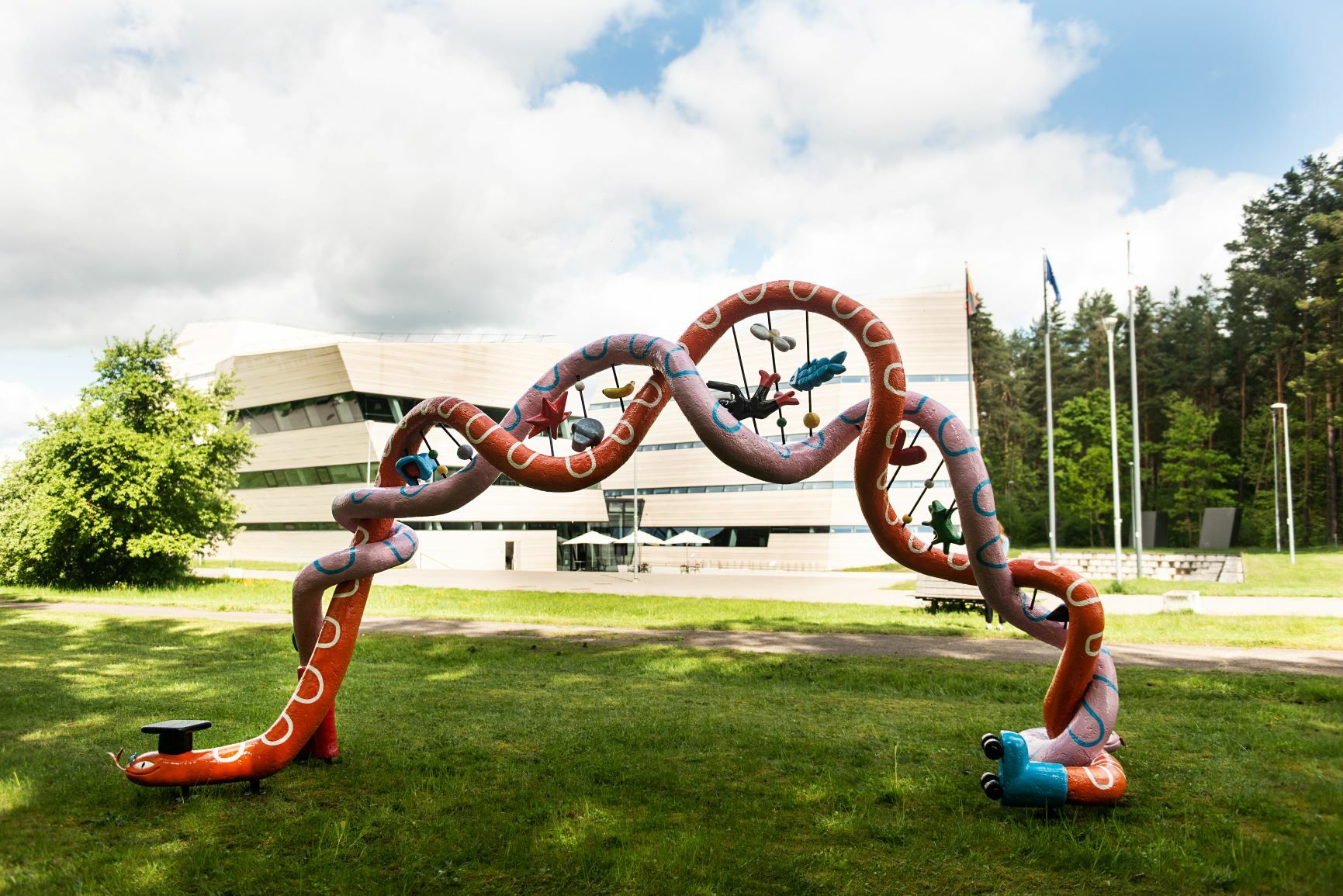Vilnius, Lithuania’s capital, is fusing science and art with a sculpture dedicated to life sciences. The piece of art has been created to celebrate the scientific discoveries that took place in the city. It serves to artistically depict the “gene scissors” that enabled precise DNA editing—a Nobel Prize-awarded technology and a field of study of Prof. Virginijus Šikšnys, a scientist based in Vilnius.
Vilnius, Lithuania’s capital, has unveiled a sculpture that unites science and art, and celebrates scientific discoveries, which might affect the daily lives of citizens by enabling treatment of inherited genetic diseases and development of new cancer therapies. The art piece symbolizes DNA and “gene scissors” CRISPR-Cas9—a gene editing tool which received the Nobel Prize last year. It aims to commend the breakthrough achievements in biotechnology and the contributions of Lithuanian scientists, like Prof. Virginijus Šikšnys—a Lithuanian pioneer in gene editing technology.
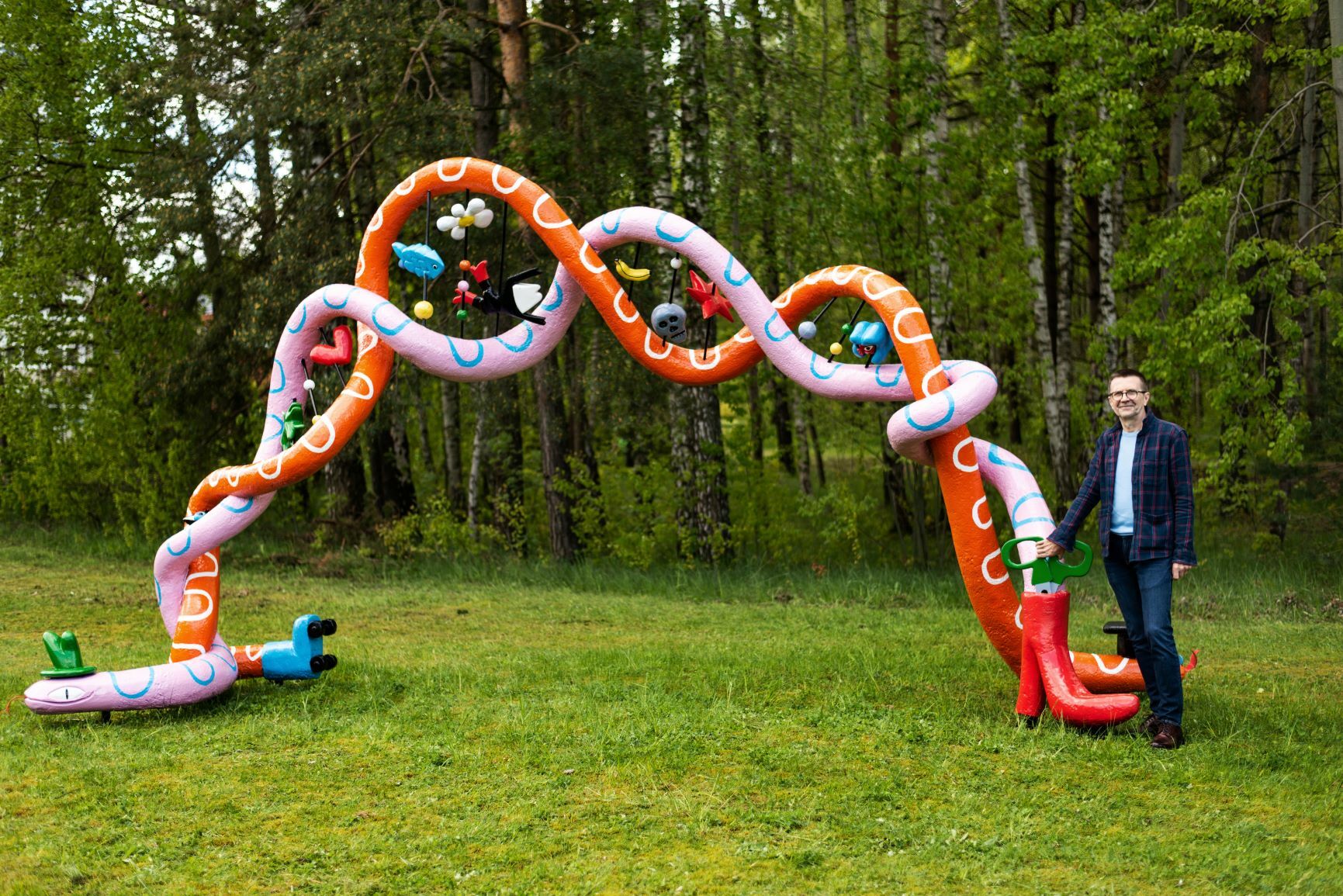
“It’s a great pleasure to see that scientific discoveries, which I and my team took part in, have inspired not only academia but the artists as well. The sculpture is like a bridge between science and art that allows everyone to feel a joy of discovery,” said Prof. Šikšnys.
The artistic intention behind the sculpture is to allow the non-scientific community to get involved in ground-breaking innovations as a spectator of science-art synthesis. The sculpture also serves to inspire curiosity that can lead to new applications of the “gene scissors” technology—from treating genetic diseases, to producing allergen-free food, and more. The artistic installation is located in Vilnius student campus, next to Vilnius University Life Sciences Centre.
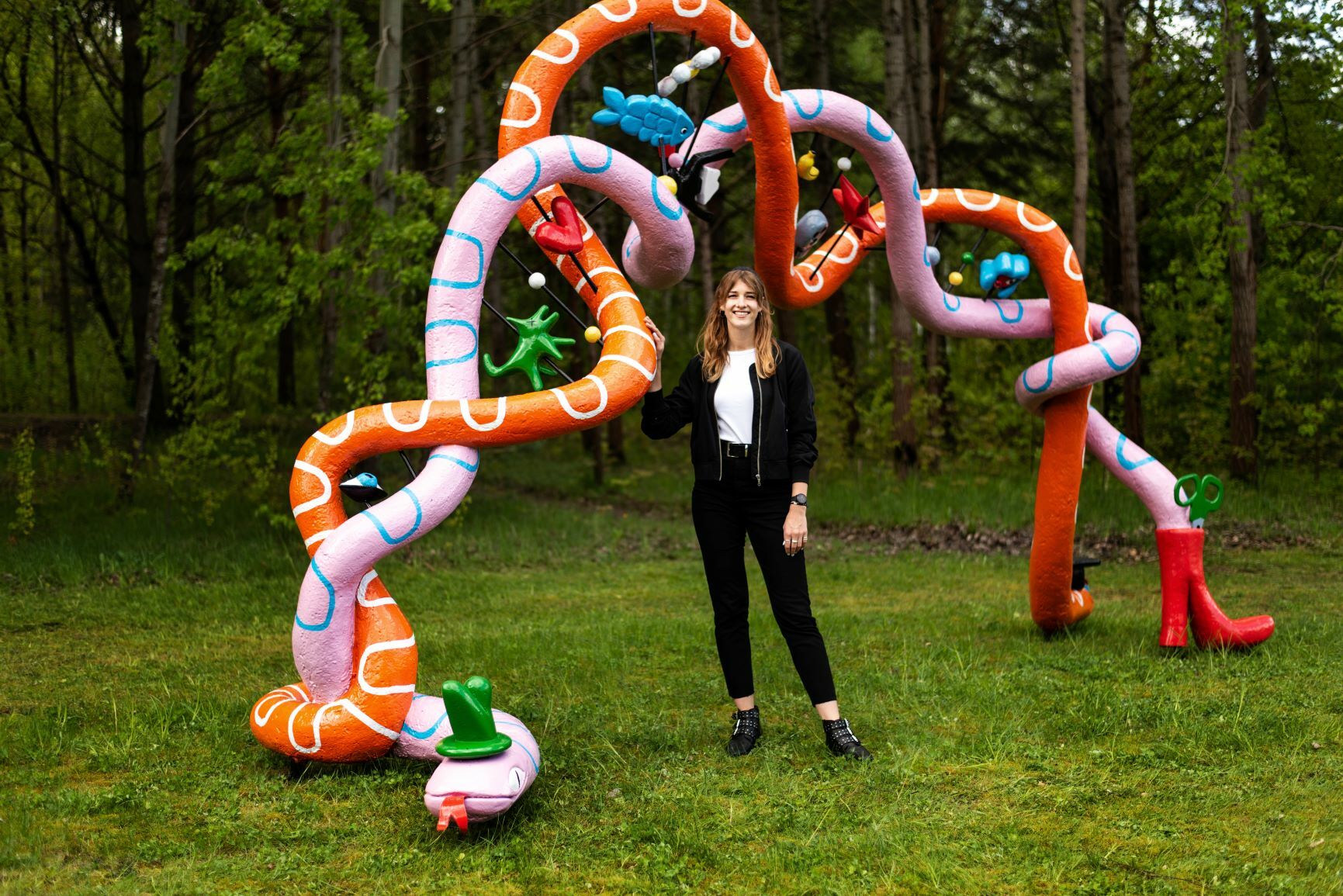
The sculpture has been created by Eglė Žvirblytė, an artist, who comes from a family of biotechnology scientists. The artist’s vision of the sculpture encompasses the intention to prompt the community to ask questions that can lead to the next big scientific discovery.
Aside from the artistic installation, Vilnius is also funding a scholarship, amounting to €50K, to encourage talents in life sciences to choose study and career opportunities at Vilnius University. The scholarship is awarded to local and foreign PhD students.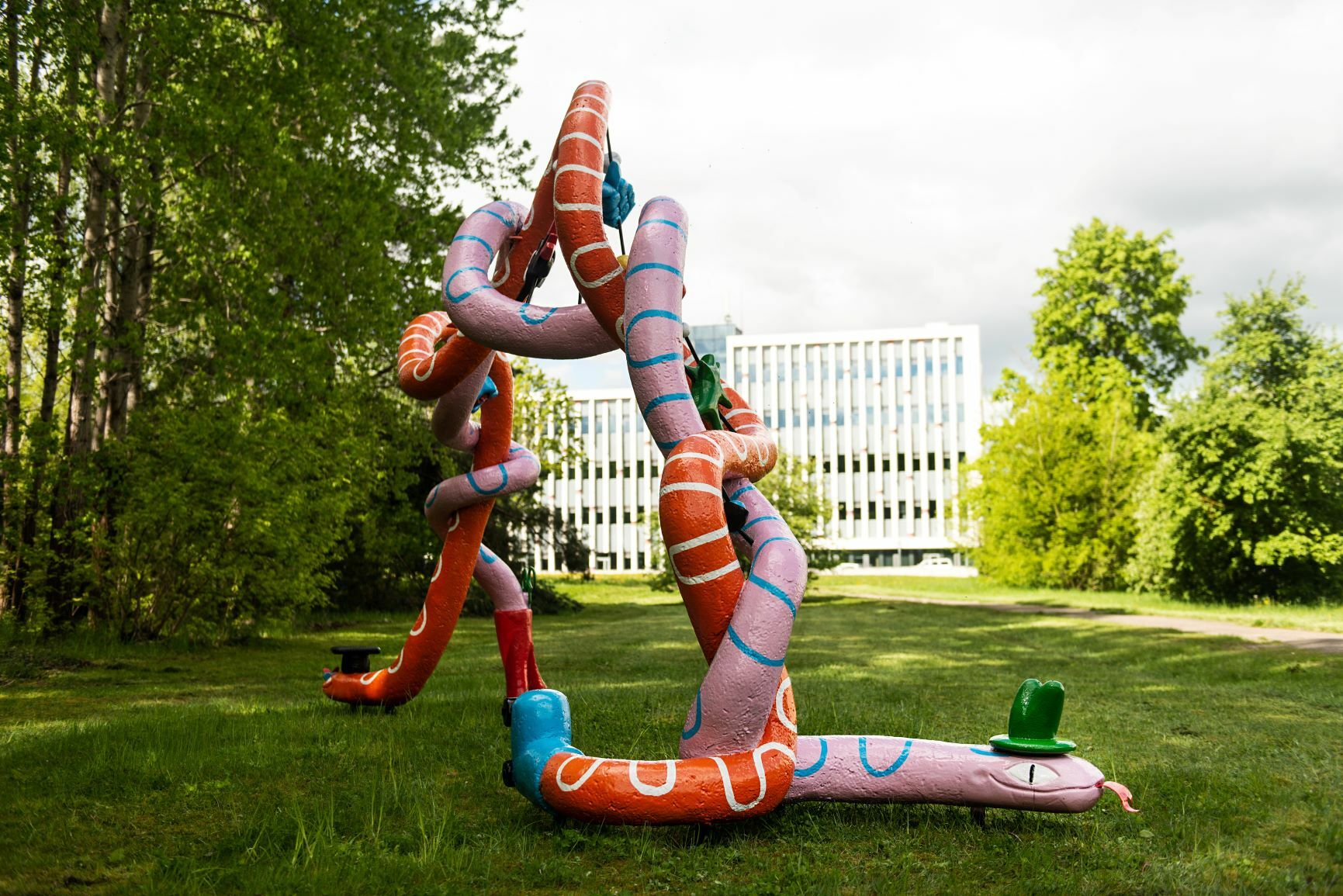 “The importance of scientific research has been acutely felt during the pandemic, as we entered the active phase of vaccination after a very short period of COVID-19 outbreak. Vilnius is also a place where many globally-recognised ideas, such as CRISPR-Cas9, are conceived,” commented Remigijus Šimašius, Mayor of Vilnius. “The capital has also been steadily increasing its visibility among biotech companies, which regard Vilnius as a convenient location for large-scale research.”
“The importance of scientific research has been acutely felt during the pandemic, as we entered the active phase of vaccination after a very short period of COVID-19 outbreak. Vilnius is also a place where many globally-recognised ideas, such as CRISPR-Cas9, are conceived,” commented Remigijus Šimašius, Mayor of Vilnius. “The capital has also been steadily increasing its visibility among biotech companies, which regard Vilnius as a convenient location for large-scale research.”
Vilnius has been making academic subjects more approachable to the non-scientific community. For instance, Vilnius University Faculty of Physics has been organising a Physicist’s Day for over 50 years. The celebration aims to show the playful side of physics and general availability of science. The capital has also been hosting several scientific events: a science festival Spaceship Earth, designed to encourage youth to consider a career in scientific fields, and an international forum Life Sciences Baltics for biotechnology, pharmaceutical, and medical experts.
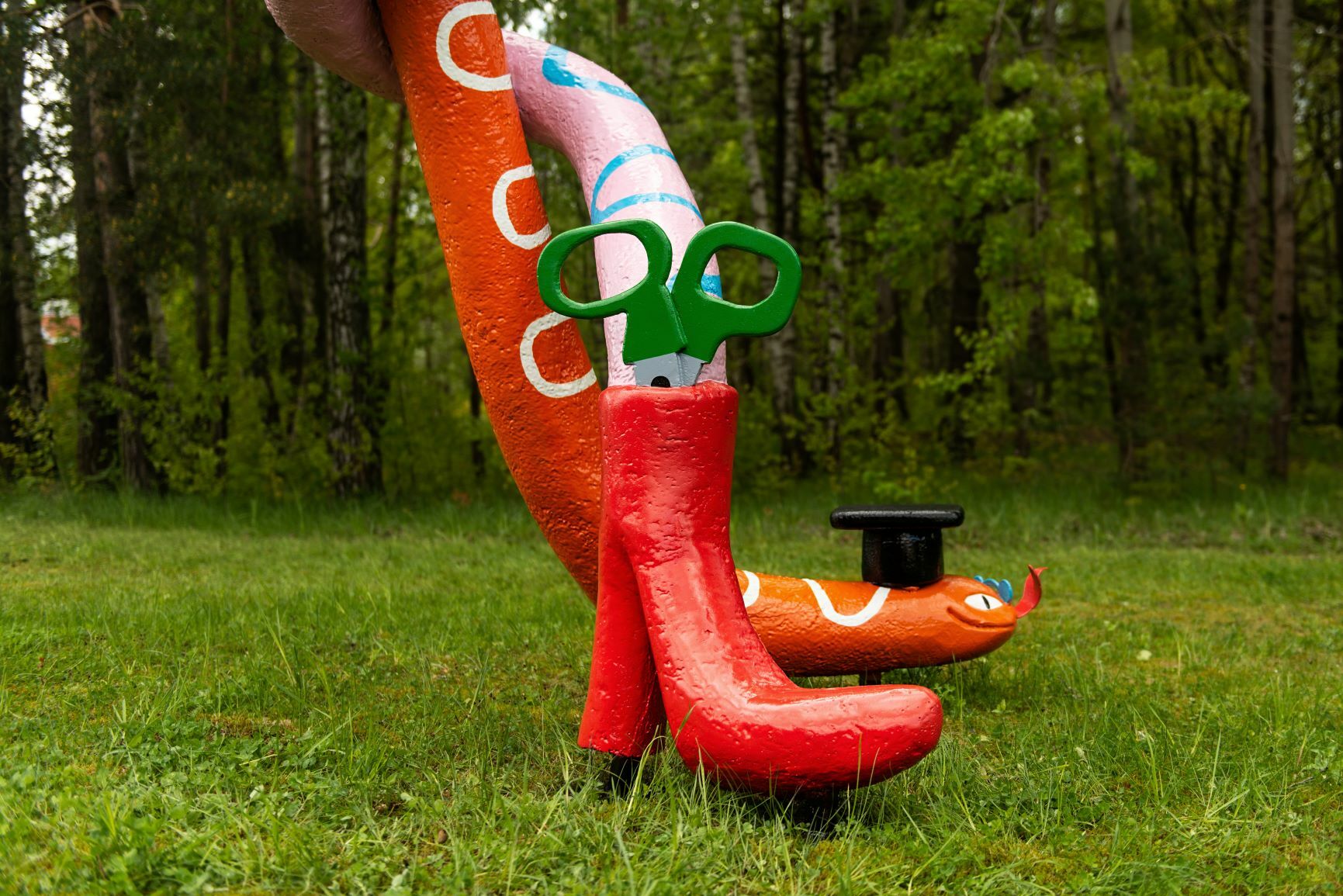 Although the sculpture symbolizes the artistic spin on life sciences, the capital has also been making progress in the sector’s ecosystem development. Biogen, the U.S. biotechnology giant, has recently opened its office in Vilnius, joining companies such as Thermo Fisher Scientific Baltics and Teva. Moreover, the prestigious European Molecular Biology Laboratory chose to partner with Vilnius University Life Sciences Center last September.
Although the sculpture symbolizes the artistic spin on life sciences, the capital has also been making progress in the sector’s ecosystem development. Biogen, the U.S. biotechnology giant, has recently opened its office in Vilnius, joining companies such as Thermo Fisher Scientific Baltics and Teva. Moreover, the prestigious European Molecular Biology Laboratory chose to partner with Vilnius University Life Sciences Center last September.
According to Invest Lithuania data, Lithuania’s life sciences sector grows on average 22% annually, making it one of the fastest growing in Europe. The Agency for Science, Innovation and Technology (MITA) states that the country exports around 90% of its products to over a hundred countries worldwide.
